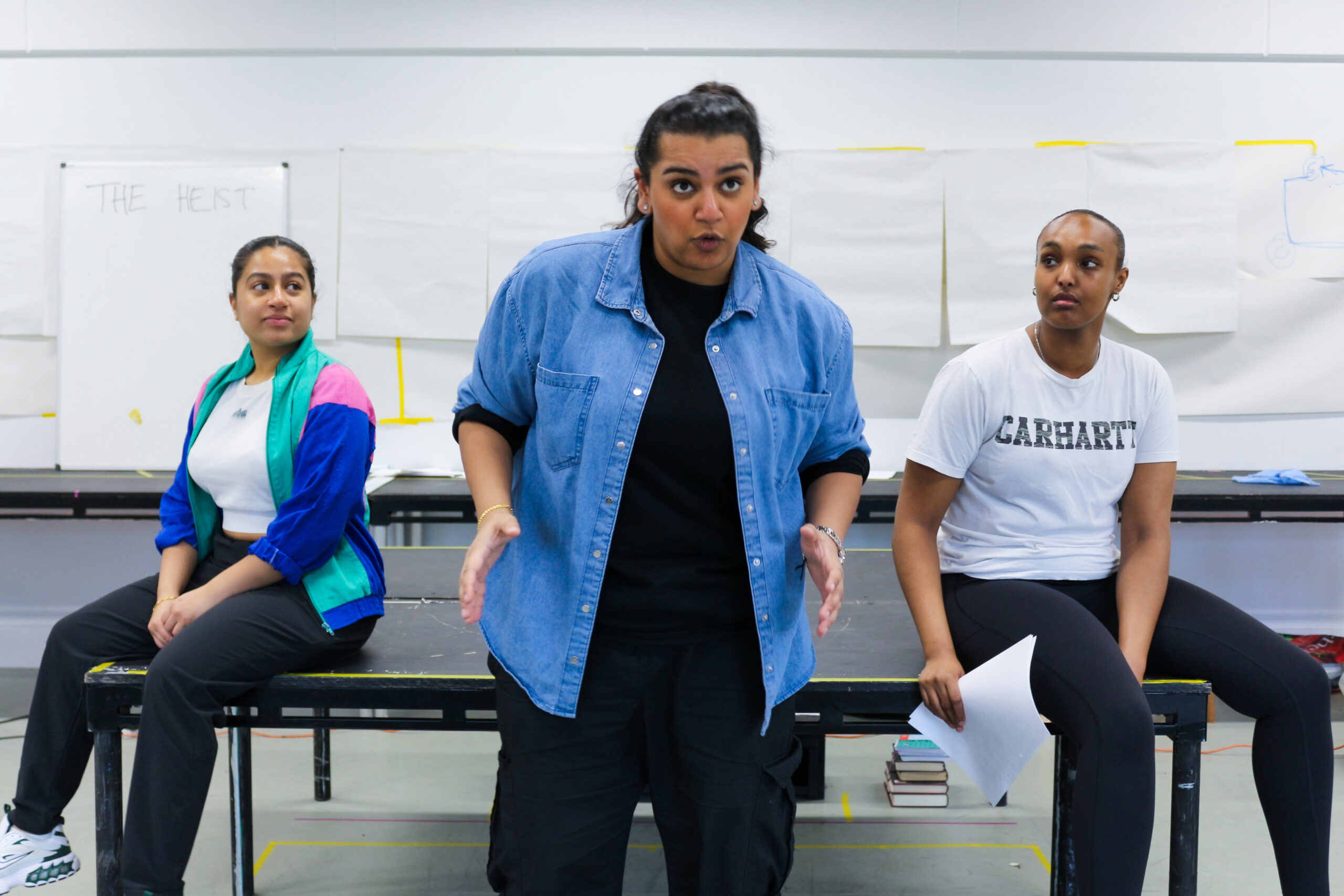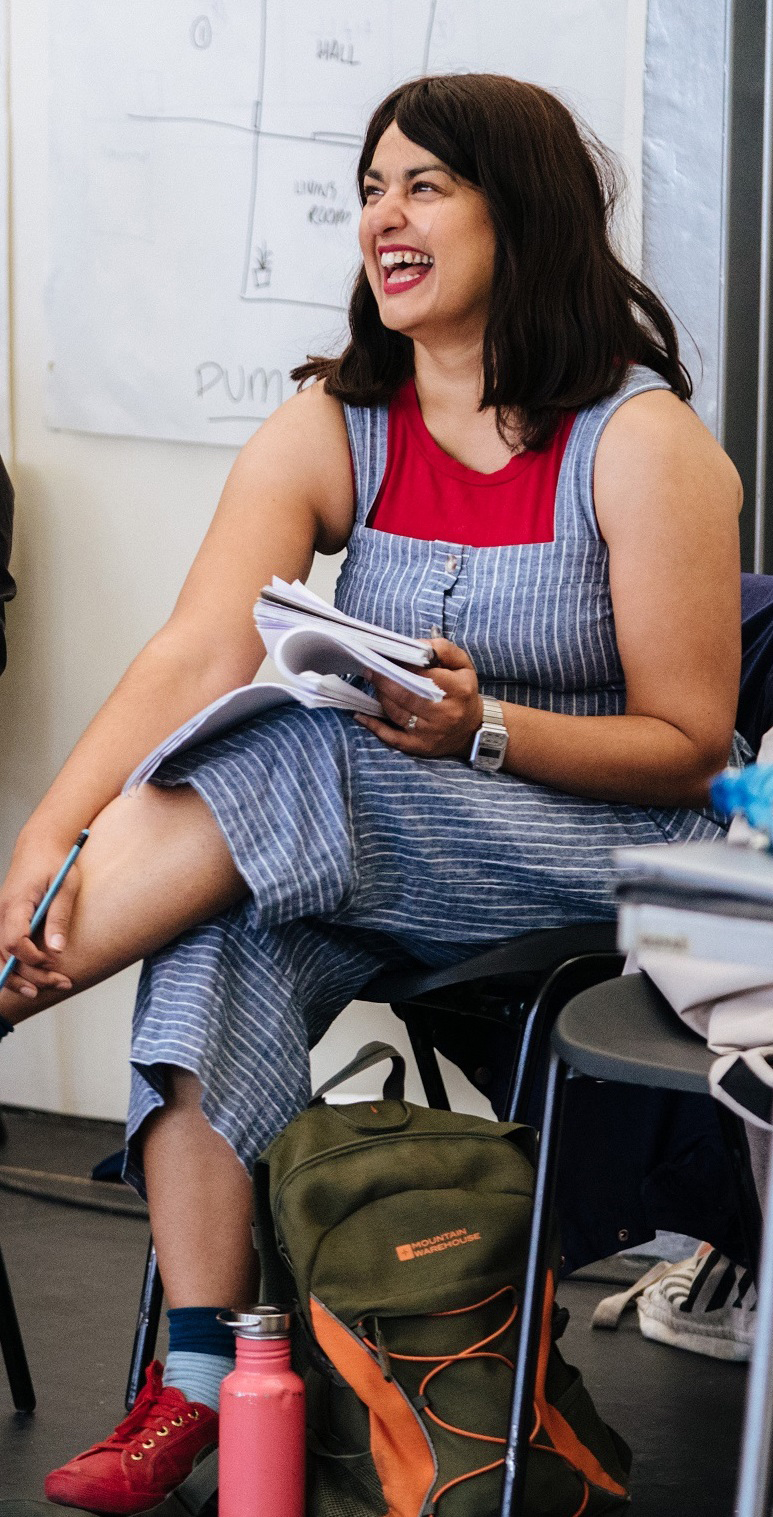
By: Sarwar Alam
A DESIRE to dissect the government’s controversial counter-terrorism strategy, Prevent, led Sonali Bhattacharyya to write her latest play, Liberation Squares.
It follows the lives of three teenage Muslim girls who are inspired by graphic novels, hip hop, pop culture and realworld activists.
They undergo a political awakening when they realise what people say, or even what they think, is viewed differently, depending on who that person is; the girls find themselves the target of the state surveillance Prevent programme and are forced to fight back.
“I was really interested in writing about Prevent because, to me, it goes hand in hand with what’s affecting young people now, like protests, laws and police powers, but it [Prevent] demonises a minority within the minority,” Bhattacharyya told Eastern Eye.
“Prevent disproportionately targets Muslims, schoolchildren and teenagers. I wanted to explore how Prevent impacts these teenage girls at a point in their lives when they’re really finding their voices; working out how to express themselves; and who they are.”
Amnesty international said last year that Prevent is discriminatory and disproportionately targets Muslims – specifically children and young people.
They found that up to the year leading to March 2022, only 13 per cent of Prevent referrals were taken forward as cases by the government, resulting in thousands of young people being put through daunting referrals impacting their mental health, trust in schools, hospitals and other important bodies.
In Liberation Squares, the characters Sabi (Asha Hassan), Xara (Halema Hussain) and Ruqaya (Vaneeka Dadhria) see their friendships fractured and loyalties tested as they pursue different avenues of resistance.
“The girls still have that sort of openness, honesty and are free with their expressions, that young people have. As we get older, we become more guarded and more cynical,” said Bhattacharyya.
“However, as soon as they come into contact with Prevent, their freedom of expression is immediately tainted, limited and stymied.
“It happens both in terms of materially in how their phones are taken away and they are questioned and scrutinised by the police. But, also, the mental impact it has on these three girls and their friendship and how they trust one another, how they trust themselves to have freedom of expression which is curtailed by their inner censor – the brutality that’s happening that is invisible.”

Sonali BhattacharyyaThe Prevent strategy came into the spotlight in 2015 when three teenage girls from Bethnal Green, Shamima Begum, Khadiza Sultana and Amira Abase, joined Daesh (the Islamic State group) in Syria.
Despite evidence available to the school, police and MI5 that the trio were “at risk of radicalisation”, they were never reported to Prevent.
Bhattacharyya explained that while it’s a coincidence that Liberation Squares features three teenage Muslim girls, she wanted to give a different view to how the media often portrays of girls from this community.
“Unfortunately, it’s such a low bar,” she said.
“As a storyteller, I am really trying to celebrate these characters and female Muslim adolescence and the incredible creativity and humour they possess.
“One of them is really into beatboxing and hip hop and rapping. Another one loves graphic novels and comics. The third girl enjoys making her own videos on TikTok.
“I love these characters so much, because they are rooted in teenagers I’ve spoken to for this play and teenagers I know.”
Bhattacharyya is quick to stress that although the play deals with difficult themes, it is one that audiences will enjoy as it has a lot of humour.
“The joyousness is the liberating feeling of being an adolescent,” she said.
“These characters use their imaginary world and the mediums [social media] they understand – their love of films, their love of music – to understand what’s happening to them and relay their experiences to others.
“It will be an enjoyable experience [for the audience], but hopefully what people will take away from it is how much state surveillance is impacting people’s sense of freedom of expression and joy.
“The point of childhood meeting adulthood is such a precious time and people should be much angrier that that’s being robbed of people by the government.
“That ‘adultificaton’ we see happen to young black people, young brown people and particularly young Muslim people, is really harmful because what you’re taking away is the need for every young person be able to explore and grow and learn about themselves and instead they’re being treated with suspicion, they’re being made to second guess themselves and look at themselves through a lens that is really harmful and is unhelpful.”
Bhattacharyya is known for advocating for greater representation of ethnic minorities in the arts.
Her plays, such as The Invisible Boy, Two Billion Beats and Chasing Hares, were celebrated for their diverse casts.
In Liberation Squares, the actors playing the Muslim teenagers are from a Bengali, Indian and Somalian background.
“I’m always trying to get more Bengalis, there’s not many of us in the industry,” joked Bhattacharyya.
“Casting was rigorous, particularly because a lot of black and brown actors don’t often get seen for the diversity of roles that they should be seen for.
“We saw great actors and chose three brilliant actors that represent the cross-section of the experiences of these characters.”
Bhattacharyya said she often changed her scripts when an actor might not be a perfect fit for a role.
“I was always really clear [with Liberation Squares] that if we find the perfect Sabi, Xara or Ruqaya, but she isn’t from the background written in the play, then I’ll tweak the script so that it works for the actors. For example, Xara and Ruqaya were originally from Leicester, but are now from the southeast” she said.
“We’re so thrilled with this cast, they are amazing. They have great chemistry and really bring these characters to life. And that’s why it’s been so fun to be in the rehearsal room.”
As well as writing hard-hitting plays, Bhattacharyya has turned her hands to Christmas shows, adapting Arabian Nights and The Jungle Book in December.
“They both did really well, particularly with young people and families,” she said.
“The Jungle Book was the fastest selling Chichester Festival Youth Theatre show in their history, with over 23,000 people coming to see it, which was awesome. And I was just talking to them about maybe doing their Christmas show 2025.”
Bhattacharya will take the helm of the Bristol Old Vic’s Christmas show this year, adapting the Little Mermaid.
She says her version of the story will see Ariel as a climate activist.
Liberation Squares will run at the Brixton Playhouse from May 2-11
 [TheChamp-Sharing]
[TheChamp-Sharing]